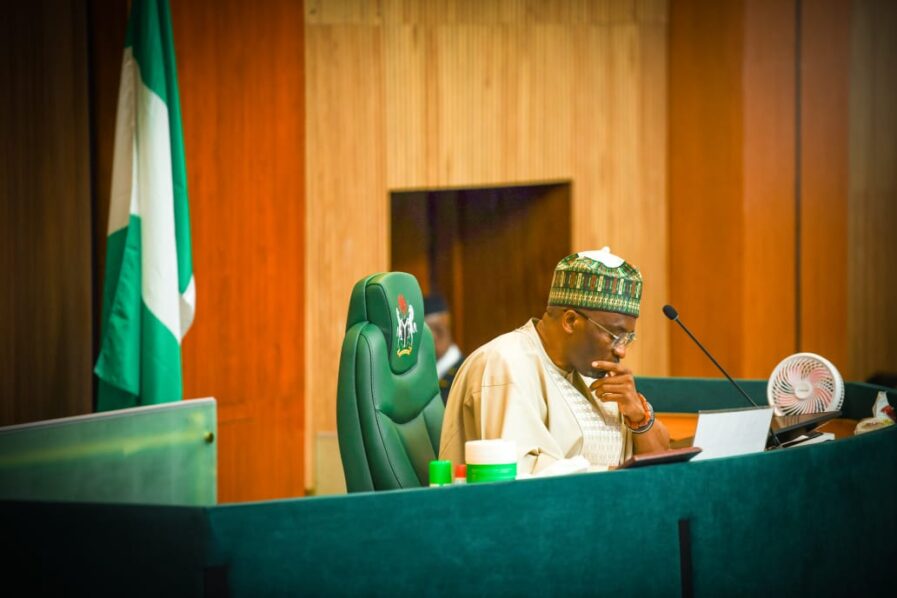
The Deputy Speaker of the House of Representatives, Benjamin Okezie Kalu, has stressed the need for universities and all higher institutions of learning in Nigeria to make a tangible impact on the citizenry.
Speaking while delivering a convocation lecture titled ‘Our Gown in Town and in Cyberspace: Sustainable and Human-Centred Education, The Mandate of Our Universities, 2025-2075’ at the 37th Convocation and 50th Anniversary ceremony of the University of Calabar, Cross River State, Kalu said despite the fact that universities were established as engines of progress, they have not done enough in delivering on their core mandate of innovation and problem solving.
He argued that there is a disconnect between academia and everyday life with problems arising not from a lack of intellect, but from a misalignment with society’s needs.
The deputy speaker, who is a member of the Class of ’98 of the institution’s Faculty of Law, noted that universities have a critical role to play in driving national progress and contributing to global knowledge.
He stressed that universities must move beyond theory to practical impact, bringing the “gown into the town – and now, into cyberspace – where knowledge is applied and ideas ignite change.”
He added: “If universities do not first serve their own communities, their achievements risk remaining confined to ivory towers. Our research must offer tangible solutions, while graduates must be equipped to address real issues, from policy refinement to sustainable transportation. If the town does not feel the impact of our “gown” our education is incomplete.
“Our universities are more than centres of learning; they are the backbone of our communities and nation. Their value lies not in certificates but in real-world impact. Institutions must go beyond academic debates, producing research that shapes policies proactively rather than reacting to crises. They should serve as policy hubs, not just locally but globally, proving that when education meets innovation, solutions follow.”
Kalu also highlighted the potential of Nigeria’s blue economy sector, emphasising the need for universities to take the lead in building expertise tailored to the sector. He said the sector remains largely untapped, emphasising that it can yield $576 billion yearly and create 127 million jobs by 2063 for Africa.
“It is time for our curricula to leap. Agriculture students must master drone mapping for pest control. Medical schools should integrate telemedicine and AI. Law faculties must adopt blockchain for land registry reforms. Engineering students must embrace robotics, and so on.
When the gown mirrors the town’s needs, productivity follows. When we bridge the gap between academia and society, universities can drive national progress while contributing meaningfully to global knowledge.
“The question before us is simple: Will our universities shape the future or merely react to it? The answer lies in our collective commitment to innovation, sustainability, and purpose-driven education. But to shape the future, we must first understand how education itself has evolved,” he said.
The event was attended by dignitaries, including the Senate President, Godswill Akpabio; many senators and members of the House of Representatives and the Chancellor of the university, Alhaji Aminu Ado Bayero.



![[FILES] A picture shows the Argentinian flag. (Photo by DANIEL LEAL-OLIVAS / AFP)](https://cdn.guardian.ng/wp-content/uploads/2020/11/Argentina-.jpg)


